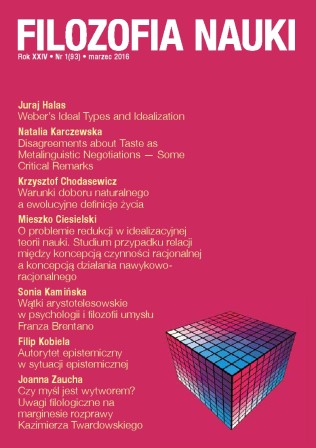Disagreements about Taste as Metalinguistic Negotiations — Some Critical Remarks
Disagreements about Taste as Metalinguistic Negotiations — Some Critical Remarks
Author(s): Natalia KarczewskaSubject(s): Philosophy, Analytic Philosophy, Philosophy of Language
Published by: Uniwersytet Warszawski - Wydział Filozofii i Socjologii, Instytut Filozofii
Keywords: disagreement; contextualism; faultless disagreement; predicates of personal taste; metalinguistic negotiations
Summary/Abstract: Disagreements about taste are often considered a problematic case for contextualism. The contextualist is committed to the claim that when a person A says: “This is tasty”, and a person B replies: “No, it’s not tasty”, they are not really disagreeing since the semantic content of A’s utterance is This is tasty to A, while the content of B’s utterance is This is tasty to B. Thus the contextualist is forced to admit that whenever people seem to disagree about taste, they are in fact just talking past each other. In this paper, I examine a solution to the “lost disagreement” problem which is supposed to be consistent with contextualism. It is an analysis proposed by Timothy Sundell and David Plunkett (2013), according to which when people take themselves to be disagreeing about whether some food has the quality of tastiness, they are in fact disputing whether the term “tasty” is applicable in the given context. I take this analysis to be insightful, but I also argue that it is not an adequate solution to the “lost disagreement” problem. I point to a non-negotiable subjective semantic component of “tasty” and put forward the idea of a “personal algorithm” to illustrate where this subjectivity of taste predicates might come from.
Journal: Filozofia Nauki
- Issue Year: 24/2016
- Issue No: 1 (93)
- Page Range: 27-39
- Page Count: 13
- Language: English

